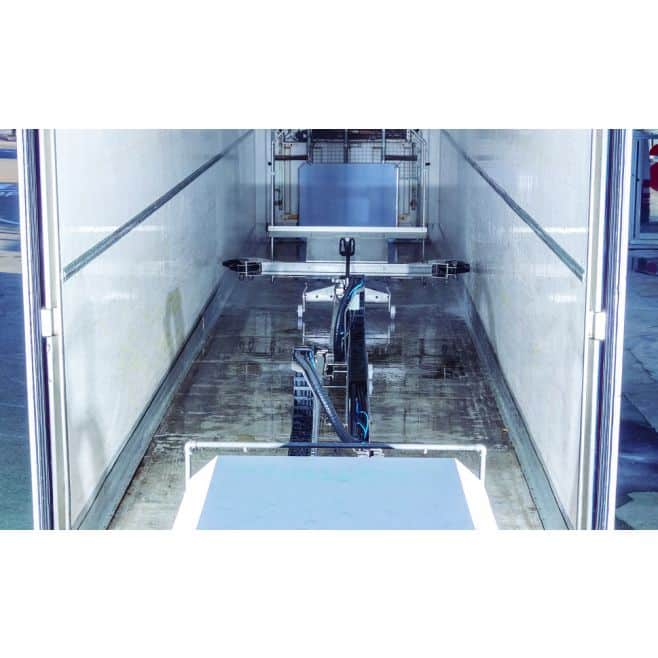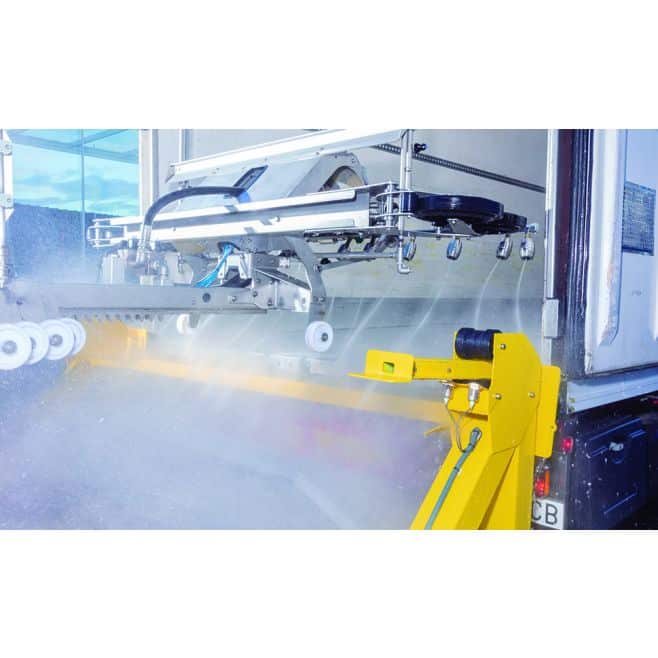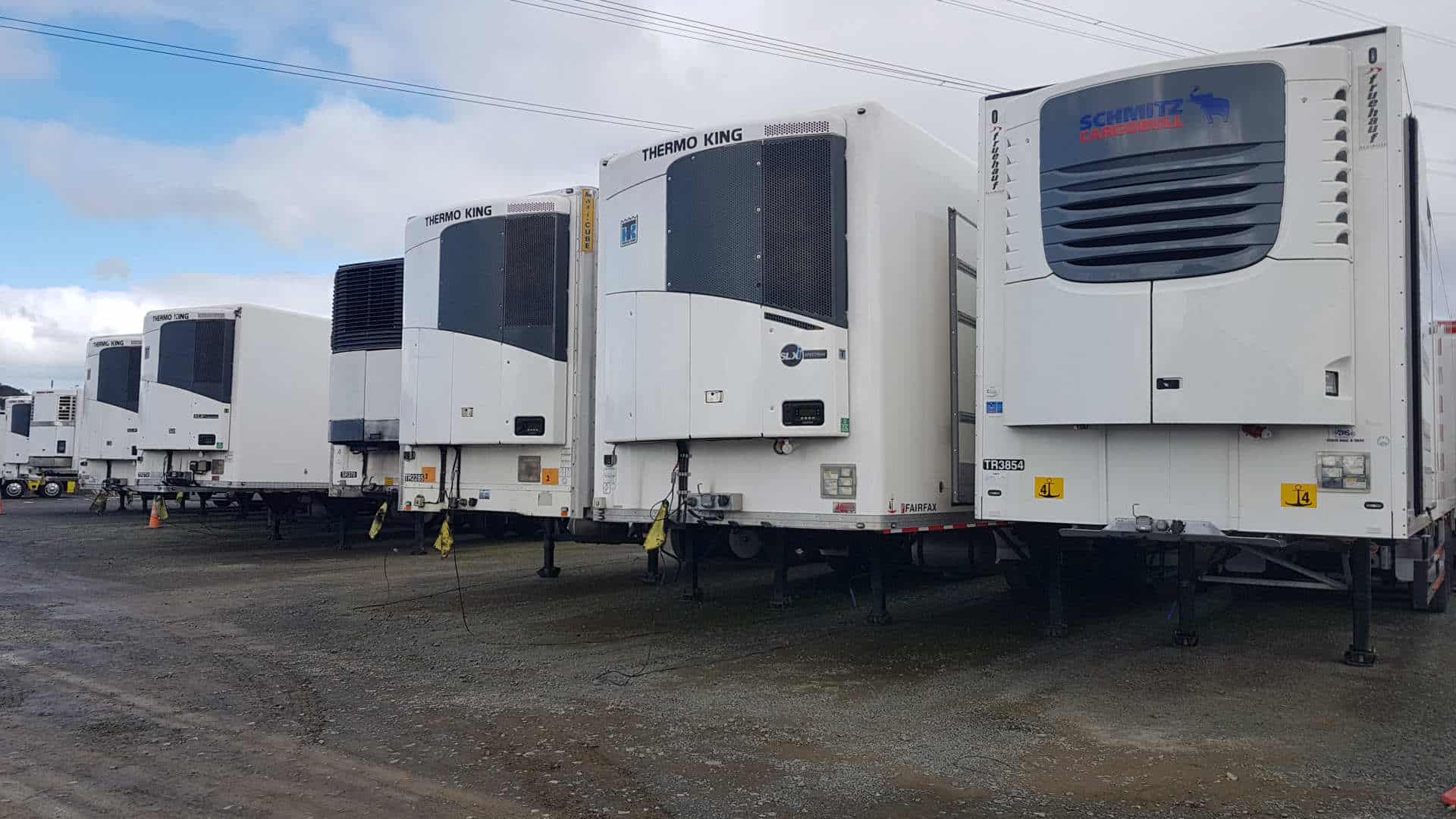How To Maintain a Refrigerated Trailer for Proper Food Handling Requirements and Recordation?
Maintaining refrigerated trailers is your top priority as a carrier of chilled freight. Your truck’s upkeep directly contributes to the reliability of your reefer shipments. The Food Safety Modernization Act‘s standards are the simplest to adhere to in order to maintain a refrigerated vehicle (FSMA). Here are some important advice on maintaining refrigerated trucks in accordance with these rules.

Keep the Proper Temperature
The trailer used to transport food must, first and foremost, maintain the temperature required for the safe transportation of that commodity. The driver prevents food rotting or contamination due to germs or mold by maintaining the proper temperature. This would compromise the trailer’s general cleanliness and harm the cargo.
Regularly perform inspections
Your driver should perform routine checks of the reefer trailer and refrigeration unit in addition to the pre- and post-trip inspections required by the Federal Motor Carrier Safety Administration. This covers before, during, and after a journey, as well as while in route.
The driver must manually gauge and calibrate the refrigeration system and check the compressor’s functionality. In order to recognize mechanical issues on the road, drivers must also be aware of how the condenser and evaporator work. The driver must keep an eye out for oil leaks from the engine and compressor while doing the inspections.
Belts and hoses in refrigeration units need to be replaced every 1,500 hours or according to the engine life cycle, depending on the maintenance plan. This is essential for preventing over-the-road breakdowns and the loss of chilled cargo.
Maintain a Full Diesel Tank
The following reefer truck safety advice entails a procedure that your driver is already dedicated to. Because a refrigerated unit requires diesel fuel to operate, plan to use more fuel than you would with a dry van trailer without an engine. In certain cases, shippers won’t even load a reefer freight on less than three-quarters of a tank of fuel at the loading port.
Wash-Outs and Clean-Outs for trailers
Drivers and fleet operators are expected to clean their trailers after every transport involving food products, notably meat or cattle. A truck wash-out, also known as a clean-out, might involve anything from a quick sweep of the trailer floor to a thorough power wash at the closest truck wash. The following reefer truck maintenance problem is prevented by doing this.
Avoid Cross-Contact and Contamination
Drivers of reefer trucks must avoid cross-contact or contaminating raw food. This starts with keeping the trailer spotless and includes following safe food transport procedures. Cross-contamination of components known to cause food allergies, such peanuts, is another growing issue that must be avoided.

Training in Food Safety
The FDA mandates that carriers and drivers complete safety training in order to deliver food securely. This course focuses on safe shipping procedures, such as limiting microbiological food dangers or managing the bulk transit of juice concentrates.
Reviewing the FDA’s cleanliness and transportation rules is one approach to get trained on proper reefer transport techniques. Your fleet of drivers will be better able to operate your reefer trailers if they receive food safety training.
Maintain Shipments Records
Speaking of documentation, the FDA also mandates that shipment records be maintained by carriers and drivers in order to comply with written agreements and protocols pertaining to food safety transportation standards. Describe how reefer trailers are handled in the procedures, including how frequently drivers must undergo truck and trailer inspections per your company’s requirements.
By having this documentation, you may put procedures and standards in place to increase the reefer truck’s lifespan. Depending on the record type and activity, these documents must be preserved for a certain period of time. However, after a year, you can discard all of these documents.
LazrTek automated refrigerated trailer washout robots are linked to computers that record every washout by trailer serial number and the time, date and frequency of each trailers cleanouts so the FDA or other regulatory agencies can easily audit trailer washouts. LazrTek delivers a certificate of compliance in accordance with FDA guidelines for every trailer washout for the operators records and stores them electronically with each trailer washout by trailer serial number with time stamp dating.
LazrTek’s automated refrigerated trailer cleans out equipment automatically, washes, rinses and sanitizes the inside of trailers to FDA standards and also automatically sanitizes itself (the robot) to ensure there is not cross contamination between trailers pre and post washout.
LazrTek is so confident of the quality and reliability of its trailer washout robots that it will install an internal refrigerated trailer washout robot at no cost to you and simply charge a per washout fee. A minimum of 30 washouts must be guaranteed a day to pay only $20.00 per washout. The time required for washout is only 6 minutes once the trailer is in position and the robot is in place.
LazrTek brings speed, great price, and convenience to the refrigerated trailer washout business. Let us demo a refrigerated trailer washout for you today. Contact Harold@LazrTek.com or call (469) 536-8478 to get your free demonstration today.



